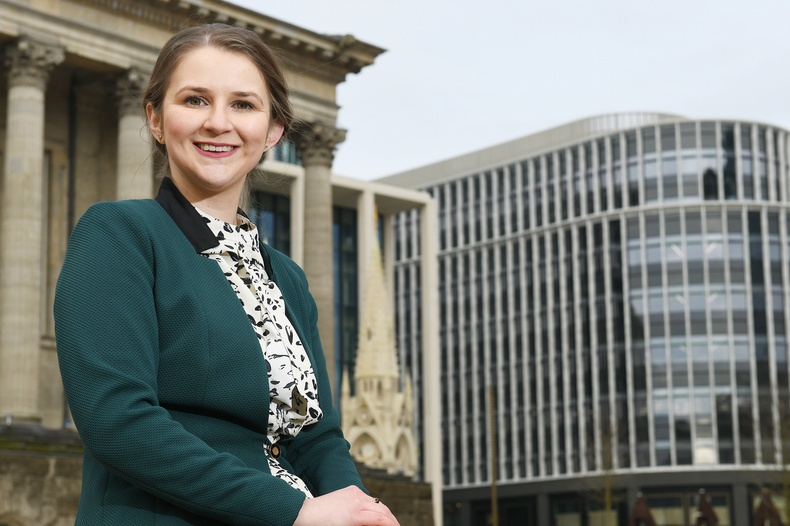Overcoming barriers to fully embrace transition to net zero

This month, I've been thinking about the future, writes Henrietta Brealey.
After this summer, it's hard not to. In July, all seven continents experienced their own extreme weather events. We also saw Earth's hottest week on record. Clearly, a whole lot needs to change, and fast.
On the upside, when I've been out and about speaking to businesses in recent weeks, environmental sustainability and the wider ESG agenda remains front of mind. For some, it's driven by doing the right thing. For many it's a combination of this and that magic ingredient that makes the world go round - enlightened self-interest.
Firms I speak to report finding tangible benefits for continuing down the path of reducing their emissions. For some it's direct cost savings - reducing energy usage cuts costs as well as carbon. For some it's a competitive imperative - increasingly, public bodies and larger organisations are tackling carbon emissions in their supply chains by requiring suppliers to demonstrate the steps they too are taking to become more sustainable in order to win business.
This is also shown in our research. Greater Birmingham Chambers of Commerce's Net Zero Sustainability Report 2023 showed 79 per cent of businesses surveyed felt that over the past 12 months, reducing carbon/greenhouse gas emissions had become more of a priority for their organisation.
However, it's not all smooth sailing. Businesses still cite barriers to fully embracing the transition to net zero. Based on our research at the Chamber, the top three are cost (55 per cent cited this as a barrier), knowledge/understanding (48 per cent) and economic conditions (38 per cent).
One thing we're focused on at the Chamber is tackling that knowledge gap. As an organisation bringing together Greater Birmingham's businesses, from start-ups to multinationals, our members have a wealth of experience in working through their net zero and carbon reduction journeys. Our Sustainable Business Series will be back in September with a series of free workshops and events all aimed at offering practical advice and peer learning for local businesses on this agenda.
But there's plenty more to do of course, with many businesses looking ahead to party conference season and then the expected General Election to pick up the cues on government direction in this space. The importance of government policy in creating that key component of enlightened self-interest cannot be overstated.
As well as the future of the planet, I've also been thinking about the future of our region. It's judging time for the Greater Birmingham Young Professional of the Year Awards. Earlier this year, around130 young professionals from all corners and industries of the city-region applied to be recognised in these awards. Just over 60 were shortlisted and our judging panels have taken up the heroic task of interviewing each and every one of them.
Last week I attended a reception for the shortlisted professionals on the Library of Birmingham's terrace (conveniently coinciding with a rare bit of sunshine). And they are brilliant. The energy, ideas, creativity and leadership potential was just phenomenal.
Now, I'm not one of those who'll say “leave it to the next generation, they'll fix this” when it comes to the environment or anything else. It's all of our responsibilities, right here, right now.
But there's certainly a big opportunity to bring the business leaders of the future into the conversation and tap into their insight, energy and enthusiasm for seeing this place and its people thrive.
From a Chamber perspective, we're now on to the third cohort of the Future Faces mentoring scheme, matching young professionals with mentors from the business community to support their professional and personal development.
Future Faces is the young professional development and networking arm of the Chamber. They have now matched around 90 mentors and mentees through the programme.
While almost all mentees so far report positive outcomes from the programme, so too have the mentors - 90 per cent found benefits from taking part in the scheme. One of the top cited benefits? Reverse mentoring; having the opportunity to tap in to a different point of view.
We're also bringing young professionals into the heart of our decision making, running a Future Faces shadow board programme, inviting two representatives of Future Faces to take part in and contribute to some of our formal board meetings each year.
I know increasingly others in the business community are looking to the opportunities of reverse mentoring or other programmes to ensure managers and senior staff keep connected with the views and experiences of their younger colleagues.
So if you want to see the future of the region's business community first hand, join us on 22 September as we celebrate the Greater Birmingham Young Professional of the Year Awards or consider becoming part of the Future Faces mentoring programme - or any other similar programme for that matter. I can guarantee, you'll learn a thing or two.
Henrietta Brealey is chief executive of Greater Birmingham Chambers of Commerce
This column first appeared in the Birmingham Post
